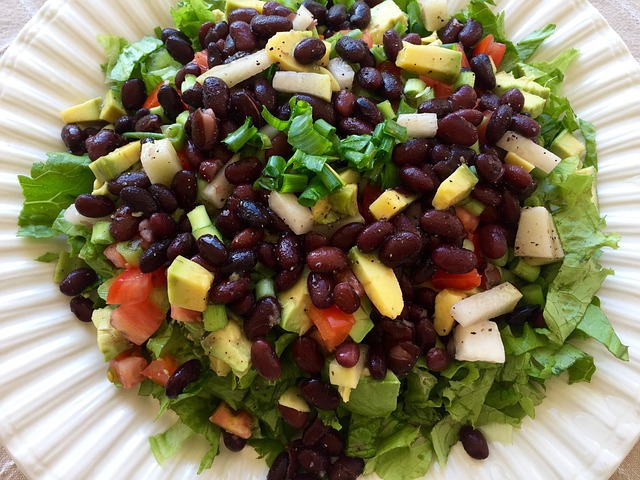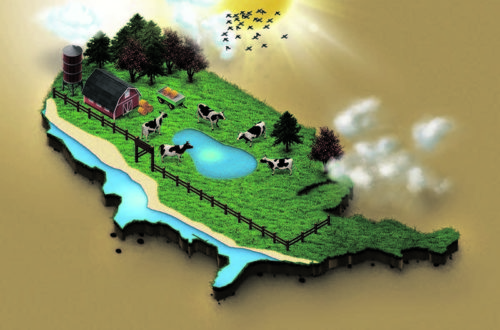As farming has grown from small-scale to massive factory models, people have become increasingly concerned about its environmental effects. For many, a simple solution is to switch out meat and dairy products for a plant-based diet. Studies show there are several environmental benefits of plant-based foods, including less water consumption, reduced emissions, and less land needed for food production.
1. Plant-Based Foods Use Less Water
There’s some debate about whether plant-based diets are as nutrient-rich and healthy as omnivore ones. However, raising meat takes a significantly larger amount of water than growing crops.
Since the 1960s, the amount of meat produced globally has more than quadrupled. Asia is the world’s largest meat producer, creating approximately 155 million pounds of meat in 2022 alone. North America and Europe are the world’s second and third-largest meat producers.
Access to clean water is a global issue. If enough people switched to plant-based foods, the market may eventually change, and there could be more clean water available.
2. They Reduce Emissions
Growing crops and cattle takes energy, which means releasing greenhouse gases into the environment. While all modern agriculture creates emissions, raising meat correlates with much higher greenhouse gas amounts.
This is because many kinds of popular meat come from ruminant animals like cattle and sheep. During their digestive process, they release methane into the environment. The Environmental Protection Agency (EPA) states 150 to over 250 pounds of methane is produced by a single cow.
Although raising crops does require energy, it doesn’t produce the same amount of greenhouse gases as raising and slaughtering meat. According to the United Nations (UN), a plant-based diet instead of animal products can reduce a person’s carbon footprint by 1.5 to 2.1 tons.
3. They Need Less Land
According to the EPA, about half of the land in the U.S. is used for agricultural purposes. However, raising meat takes a lot more land than growing crops — 330 million acres are used for crops, while 785 million acres are used for pastureland and grazing.
Around the world, a similar percentage of 44% of livable land is cultivated for farming. While one-third of this land is used for crops, the other two-thirds is dedicated to raising livestock. However, according to research from the UN, 83% of calories globally come from plants, not meat.
The same study shows 38% of the Earth’s livable land is forested, which explains why increases in livestock production lead to deforestation. When you choose a plant-based diet, less land is necessary to feed the world’s population. This helps preserve ecosystems around the world.
How to Start an Eco-Conscious Diet
Changing your diet from meat to plant-based can be daunting, even if it’s something you believe in strongly. Thankfully, there are several steps you can take to change your diet’s impact on the environment. Here are five to get you started.
1. Choose Local Food
When you eat local produce and even meat products, it’s much better for the environment than eating foods from far away. It reduces transportation emissions and small, local farms tend to be more environmentally friendly compared to factory farms.
2. Eat Organic Options
When you do eat meat, choose organic options from small-scale farms with eco-friendly practices. Try shopping at a local co-op, joining a farmers market, or buying a local cow to split with friends. Purchasing organic fruit and vegetables is better for the environment, too.
3. Try New Dishes
Start cooking one new vegetarian or vegan dish a week. You might find you really love eating this way, and it’s a low-grade commitment that can help you reduce your reliance on animal products. If a new meal is too much, try a new vegetable each week for a while.
4. Grow an Edible Plant
You don’t have to turn your backyard into a garden. However, personally growing some of your food will give you a greater appreciation for what you eat and how much work goes into your diet. You’ll be amazed at how much better food tastes when you grow it yourself.
5. Plan Meat-Free Meals
If eliminating meat sounds like too much, start slow. Try eating it every other day or just a few times a week. Experiment with different protein sources and take a B12 supplement if you decide to go off meat completely.
6. Reduce Your Food Waste
Try to plan out your meals so you avoid buying more meat, produce, or alternative protein than you need. When food goes bad, all the resources that went into making it become waste. Consider meal prepping for ready-made portions or creating a compost pile so anything you don’t eat becomes nutrition for your yard.
Support the Environment With a Plant-Based Diet
While all agriculture has an environmental impact, meat has more of a negative one than crops. Livestock need more water, create more emissions, and require more land to thrive. Switching to a plant-based diet can reduce your carbon footprint and benefit the environment.
Even small changes to your diet can make a difference. When you choose local ingredients, eat meat less frequently, and add more plant-based foods to your diet, you can help to steward the Earth’s resources responsibly.
Beth Rush is the green wellness editor at Body+Mind. She has more than five years of experience writing and editing articles covering topics like sustainable transit and the importance of green spaces in urban planning. You can find Beth on Twitter @bodymindmag. Subscribe to Body+Mind for more posts by Beth!
Image by NatureFriend







2 Comments
Pingback:
Pingback: